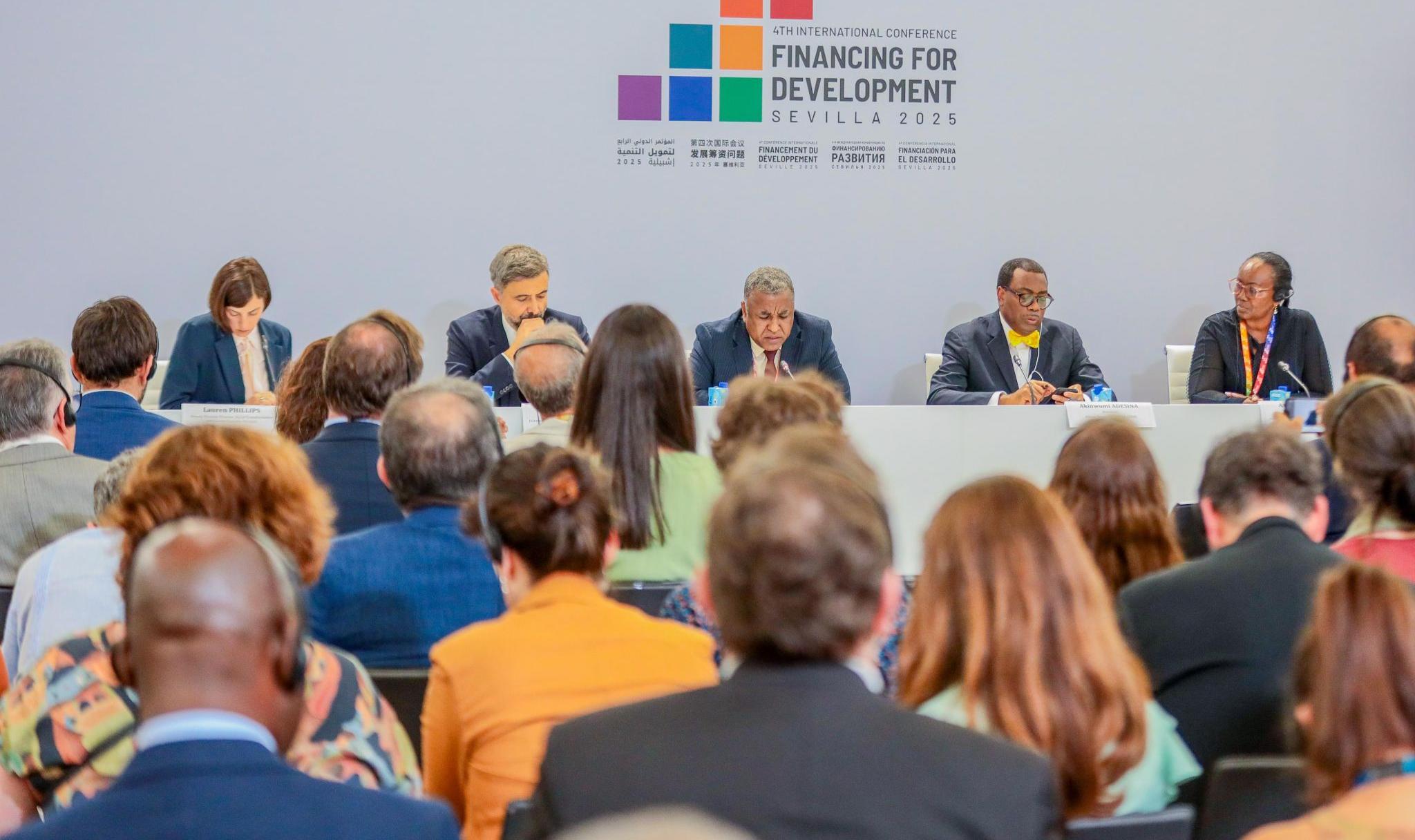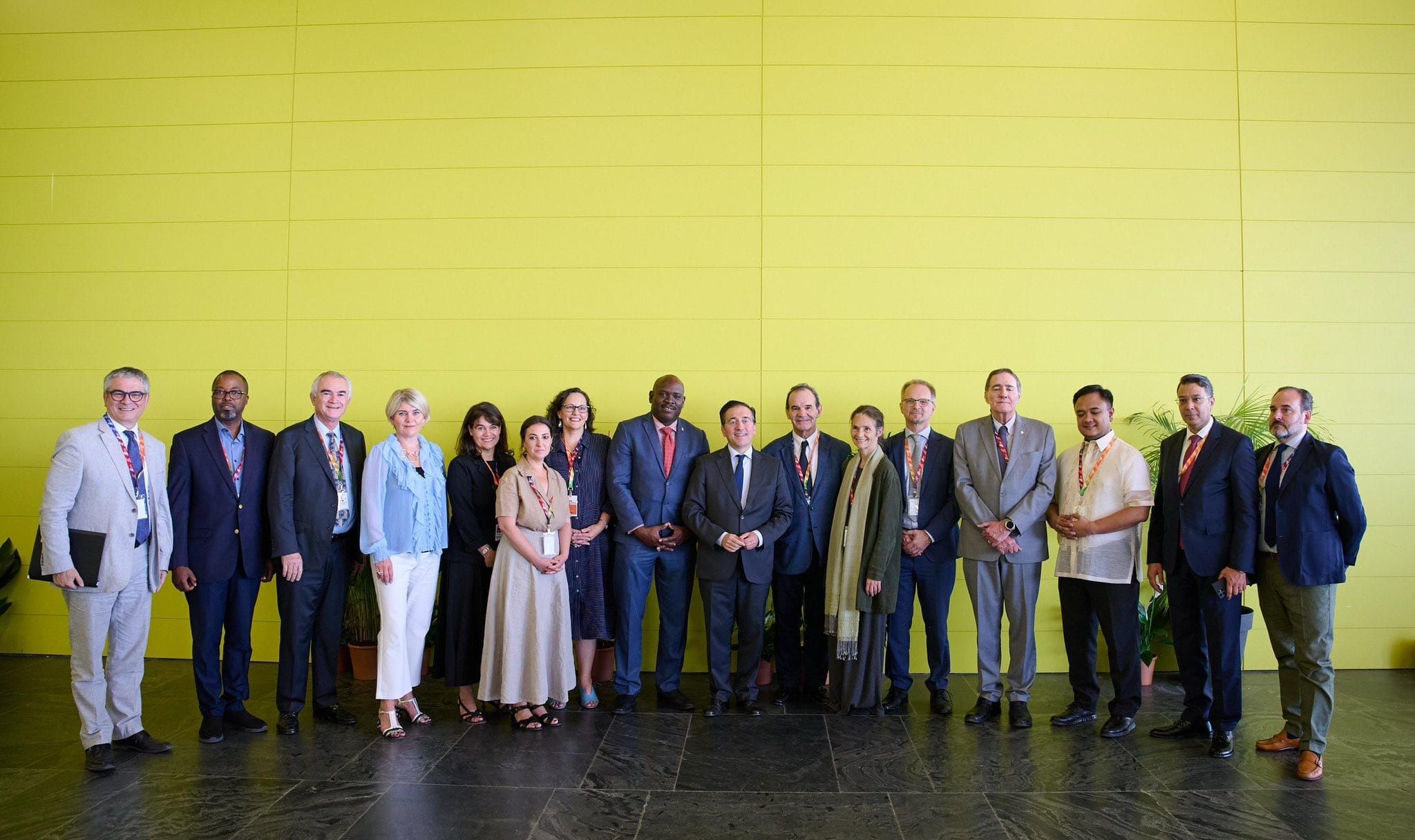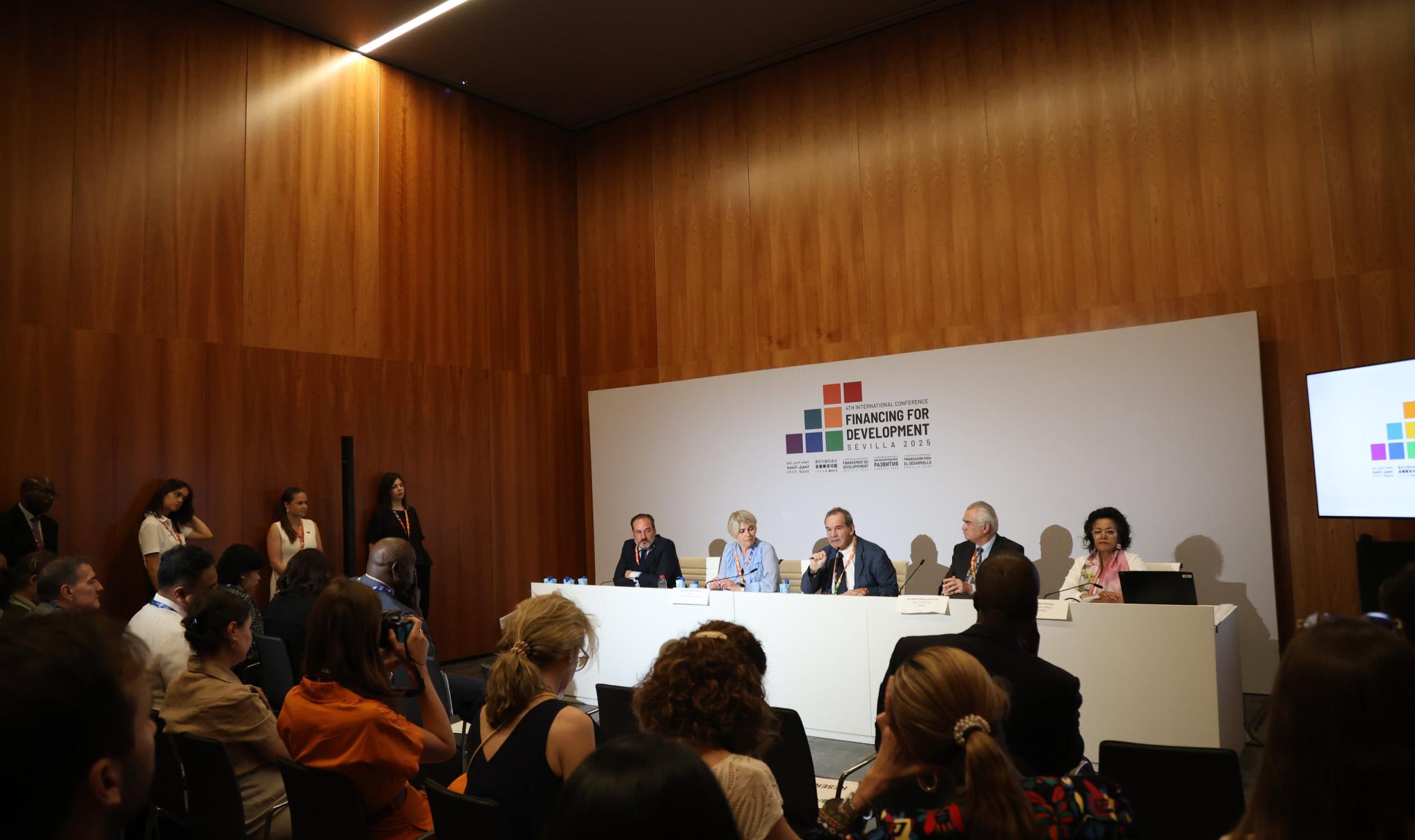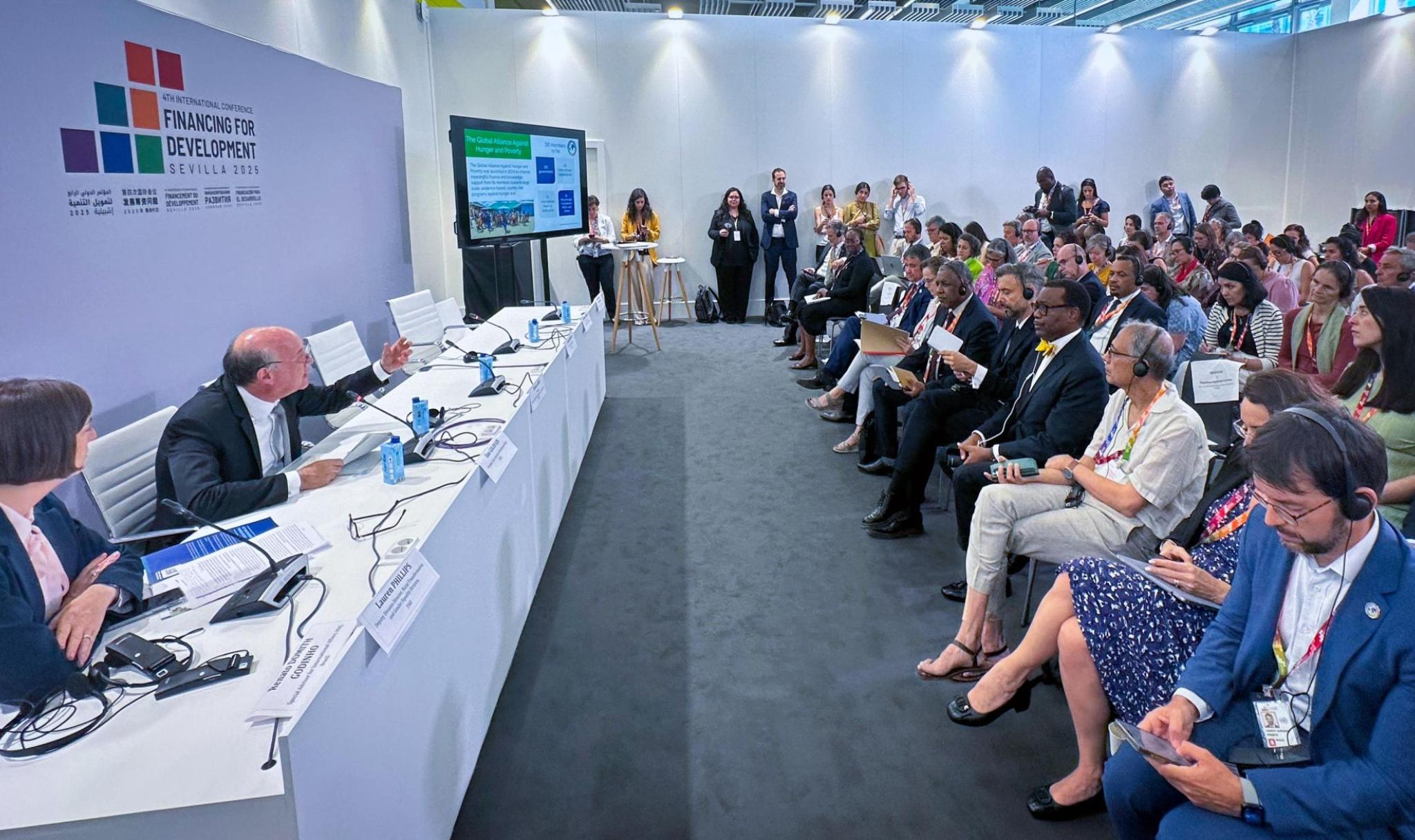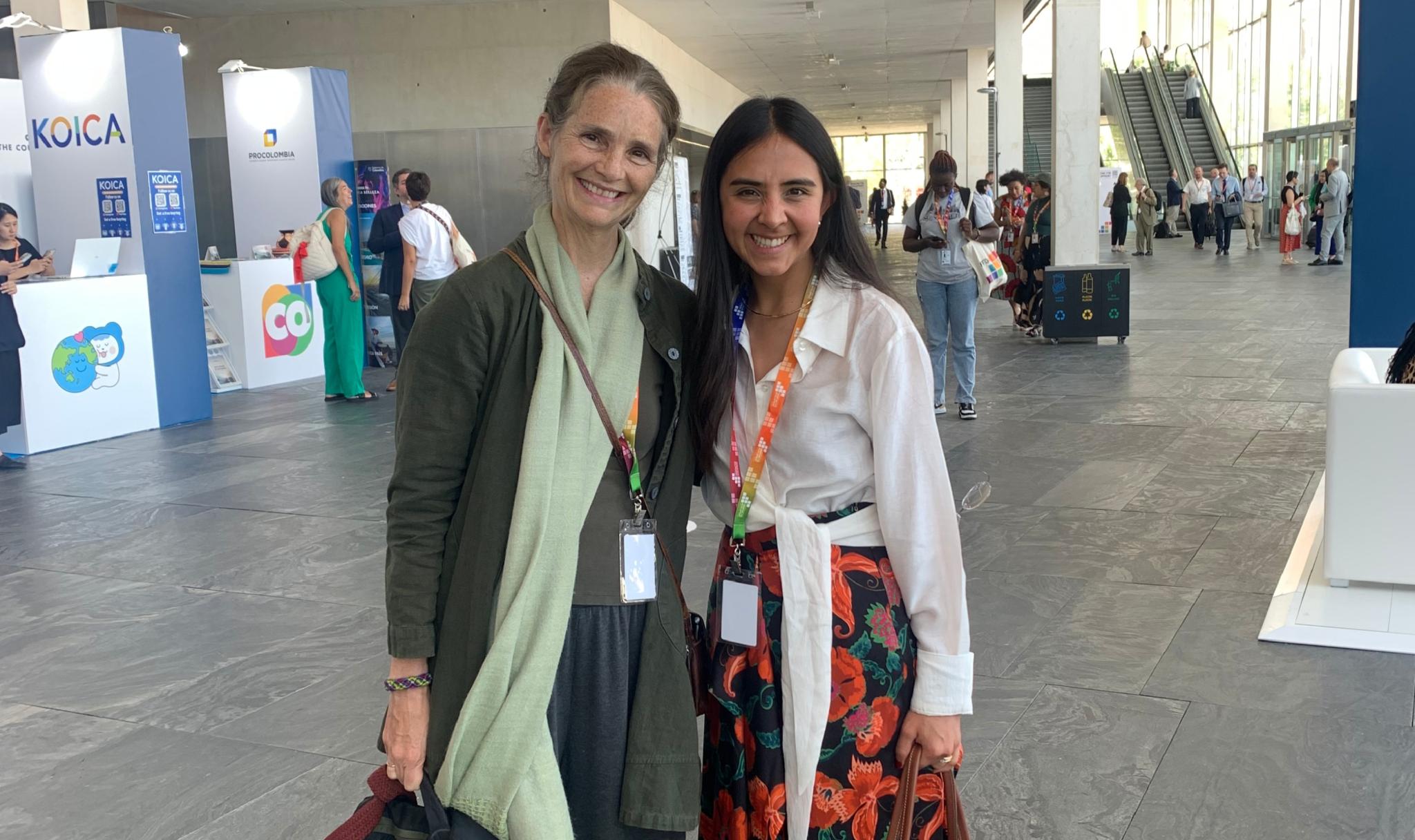FFD4 discusses initiatives to boost international cooperation for poverty reduction
OPHI was proud to join the 4th International Conference on Financing for Development (FFD4) last week in Seville in Spain, participating in Side Events organised by two Global Alliances themed around Hunger and Poverty and the ‘Beyond GDP’ discussion.
Held every ten years since 2002, this FFD brought together around 10,000 delegates, including 50 heads of state and government, as well as leaders from public and private finance, representatives from governments, and delegates from businesses, international organisations and civil society.
They met in the context of a USD 4 trillion-a-year financing gap for the SDGs, significant cuts to aid, tariffs and trade barriers, inflation, low growth, conflict and climate shocks, all of which concentrated minds on attempting concrete plans to fight poverty and promote well-being on a shared planet.
Sevilla Commitment: a multidimensional document
A multidimensional perspective on poverty runs through the Sevilla Commitment or Compromiso de Sevilla, which was adopted as the outcome document of FFD4. In the context of rising global challenges amid decreasing financing, these statements were timely.
The Sevilla Commitment opens by reaffirming that ‘poverty in all its forms and dimensions, including extreme poverty, remains the greatest global challenge and its eradication is an indispensable requirement for sustainable development’ (Article 2).
The document also reaffirms ‘the need to achieve a positive socioeconomic transformation in Africa and the need to address the diverse and specific development needs of middle-income countries, including combating poverty in all of its forms and dimensions, including extreme and multidimensional poverty’ (Article 9).
OPHI participated to advocate for the urgent need for anti-poverty support in middle-income countries as well as well-being measures for tracking development progress.
Multilateralism alive in Seville at FFD4
Cutting through many statements across the conference was a recognition that international cooperation was needed more than ever to revitalise the global financing framework and achieve the SDGs.
One highlight of discussions was the need for new and greater collaborations between key financing stakeholders such as Multilateral Development Banks (MDBs), the private sector and emerging donors to generate additional sources of financing (particularly within regions and flowing from South to South networks) for country-led poverty reduction strategies.
The conference also launched more than 100 initiatives of converging groups under the umbrella of the Seville Platform for Action (SPA). OPHI officially endorsed two initiatives from the Global Alliance Against Hunger and Poverty of which OPHI is a founding member. The initiatives “Building Better Integrated Finance for SDG 1 and 2” and the “Climate-Resilient Social Protection and Smallholder Agriculture Finance Partnership” have been designed to break down the silos that have impeded international aid efforts so far.
The first initiative will support the implementation of the Alliance’s Fast-Track and other national programme implementation plans against hunger and poverty. It explores new mechanisms and models for improving the integration and coordination of different development finance sources in support of social protection and other national programmes for fighting hunger and poverty.
Wellington Dias, Minister of Social Development and Assistance, Family and Fight Against Hunger of Brazil said of both initiatives: 'For too long, the fight against hunger and poverty has been a story of good intentions undermined by a fragmented system. With the recent major cuts in aid, change is now indispensable. The Global Alliance approach with its Fast-Track national plans, now supercharged by the Seville Platform for Action, aims to push for a new era of collaboration.'
Spain’s Foreign Minister José Manuel Albares said: 'By uniting diverse partners and finance streams around country-led implementation, we are creating a powerful engine for change that will deliver tangible outcomes for people.'
Commenting on the initiative, OPHI Director, Sabina Alkire, said: 'We are delighted that the Global Alliance, which brings together 192 committed countries, international financial institutions and development partners, is pushing for integrated finance on multidimensional poverty and hunger. This initiative seeks to streamline financial flows from multiple donors for projects that are multisectoral in scope and country led. It is heartening to see that the Global Alliance is thinking outside the box to meet the challenges of the current funding landscape so that poor people facing hunger and overlapping burdens are not left behind.’
OPHI also endorsed the second initiative from the Global Alliance Against Hunger and Poverty, the 'Climate-Resilient Social Protection and Smallholder Agriculture Finance Partnership,' which addresses the critical intersection of climate change, poverty, and food security.
By 2028, the alliance will mobilize at least USD 500 million in additional climate finance to support the development of social protection systems that can help vulnerable communities withstand climate shocks, while also investing in climate-resilient agriculture and assiting at least twenty-five countries with embedding adaptive social protection or resilient smallholder schemes in their climate plans. OPHI looks forward to a high-level declaration at COP30 relating poverty, hunger and climate action
Launch of the Global Alliance on Beyond GDP
FFD was also the setting for the launch of the new Beyond GDP Global Alliance. This alliance will support the evolution of metrics that, in the words of the Sevilla Commitment, ‘reflect progress on the economic, social and environmental dimensions of sustainable development’ (Article 37b). OPHI is delighted to join and contribute to this new Alliance, which builds on the Pact for the Future.
OPHI Director, Sabina Alkire, gave remarks at a Beyond GDP Side Event on 2 July, which was led by Spain, the OECD, UNCTAD, and SEGIB. She observed that a global ‘Beyond GDP’ framework needs to keep both poverty and well-being in view at a disaggregated level to ensure no one is left behind. Besides challenging the ‘graduation criteria’ of middle-income countries, Sabina Alkire also suggested that a Beyond GDP lens may uncover locations of strengths in relationships, harmony with the environment, and culture, among others – giving the example that one of the three multidimensionally poorest regions in Bhutan also had the highest well-being as measured by Bhutan’s pioneering, highly disaggregated and policy-salient Gross National Happiness (GNH) Index.
Hopes linked to action for a new chapter on the debt crisis
High on the agenda of FFD4 was the need to confront the debt crisis. According to the global MPI 2024, 56% of the multidimensionally poor, meaning 607 million people, are living in a country with debt fragility. Nearly two-thirds of these live in Sub-Saharan Africa, the poorest world region. Responding to this challenge, the Conference introduced a number of initiatives including a Global Hub for Debt Swaps, a Debt Pause Alliance to help waive debt payments for countries suffering from extraordinary events, and a new Borrowers’ Forum spearheaded by UNCTAD that will give voice to borrowers, aiming to promote fairer debt resolution and foster transparency, shared learning, and coordinated debt action.
Over four days, many facets of the international financial architecture were discussed with practical resolve. In the concluding press briefing, Spain’s Minister for the Economy, Carlos Cuerpo, summed up the conference by saying: ‘We want Sevilla to represent hope, but hope through change, through implementable change.’
More information
- More information about the Sevilla Commitment adopted on 30 June 2025
- More information on the outcomes of FFD4 from 3 July press release
- Read 30 June 2025 Sabina Alkire’s blog on expectations for FFD4
- Read 1 July 2025 press release on ‘Global Alliance Unveils Seville Platform Commitments to Fast-Track Finance for Ending Hunger, Poverty and Climate Risk’
- Read OECD’s information on Well-being and beyond GDP and the 2 July Side Event on Beyond GDP



